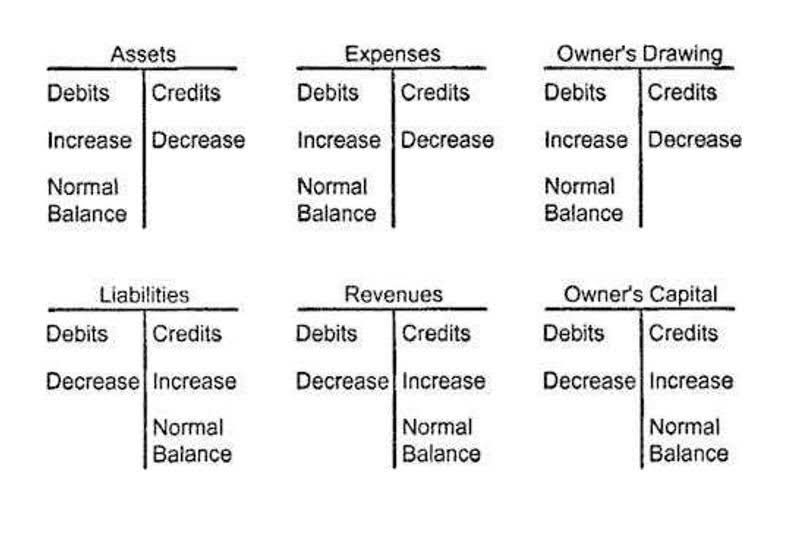What Does a Bookkeeper Do? What is Bookkeeping

You can either get some bookkeeping software and learn how to do it yourself, or you can outsource your bookkeeping to a part-time, virtual bookkeeping service like Bench. Additionally, there may be other responsibilities based on the unique needs of your business. For example, a bookkeeper may be required to learn a specific accounting software system or participate in certain meetings. https://www.bookstime.com/articles/full-charge-bookkeeper If you’re ready to take bookkeeping off your plate and delegate this task to someone else, it can be hard to know where to look. Start by reaching out to other business owners for recommendations, searching online for providers and checking out reviews on Google or Yelp. If you don’t feel comfortable with a freelancer, there are many firms that offer bookkeeping services as well.

Reconcile Your Bank Accounts

You know what a bookkeeper does and what their day-to-day responsibilities look like. A bookkeeper can help ensure your business finances are organized and lets you focus on running and growing your small business. There are different types of bookkeeping services available, depending on the time and money investment you want to make. If you’re thinking about hiring a bookkeeper or want to clean up your business books, there are different bookkeeping types that can suit your needs. Look for important features to your business, such as invoicing, expense tracking, bank reconciliation, and financial reporting.
Utilization of Accounting Software
While most bookkeepers work with businesses, some individuals may also choose to hire a bookkeeper to track personal finances. Only an accountant licensed to do so can prepare certified financial statements for lenders, buyers and investors. However, your bookkeeper can generate internal management reports for your business. Not only are you entrusting your bookkeeper with sensitive data, you are relying on their accuracy to maintain the financial records for your business. A good bookkeeper never cuts corners, and they are indispensable to small business owners who want to spend time growing their business, instead of maintaining it. If you find that you have a talent for and enjoy the process, you may consider starting your own bookkeeping business providing this service to others.
Making a mid-career pivot? Consider the tax field and Intuit
Working together, bookkeepers and accountants form a crucial part of a business’s financial infrastructure, ensuring accuracy, compliance, and a strong basis for decision-making. They ensure that business financial records are up-to-date and accurate, and this helps companies make financial decisions and focus on growing their business and focus on growing their business. Therefore, there are what is a bookkeeper often opportunities opening up for in-house bookkeepers, remote bookkeepers, or freelance bookkeepers. Often, office management tasks like customer billing, paying vendors and payroll are considered to be bookkeeping tasks. Although accounts receivable, accounts payable and payroll do impact your books, some of these tasks can be managed by a person in your company other than your bookkeeper.
Career Path
- Small businesses and sole proprietorships are also required to comply with local legal requirements for bookkeeping, such as filing taxes and maintaining proper recordkeeping practices.
- “These can be avoided by maintaining meticulous records and using the right software,” Pierce says.
- Many bookkeepers hone and develop their expertise over time while others opt to complete seminars, read books or take online classes.
- Remote work has expanded across nearly every field, including bookkeeping.
- However, you will likely need to complete a degree program and other certifications to be an accountant or move beyond a bookkeeping role.
- Think of bookkeeping as the detailed management of your business finances.
- That said, most bookkeepers nowadays use business accounting software to do their work.
While both roles involve working with financial data, a bookkeeper’s role typically involves recording and organising financial transactions, running payroll, and managing accounts payable and receivable. On the other hand, an accountant analyzes the financial data, provides strategic advice, and may handle more complex tasks like tax filing and auditing. To summarize, bookkeepers play a crucial role in maintaining accurate and organized financial records for various types of businesses. Small businesses and sole proprietorships require bookkeepers to manage their general ledger, chart of accounts, and adhere to local legal requirements.
- Bookkeepers work in a variety of settings, depending on the nature and size of the organization they serve.
- Bookkeeping is a vital profession involved in maintaining accurate financial records for individuals, businesses, and organizations.
- Bookkeepers might also have to manually add any transactions that aren’t included in the bank feed.
- Additionally, experience with bookkeeping software and a thorough understanding of best practices are often preferred.
- If you become a QuickBooks Live bookkeeper, you can work from home based upon an agreed schedule at a set hourly rate based on your location, interview, and experience level.
How do you get a bookkeeping certificate?
It’s not unusual for your bookkeeper to find a new app or solution specific to your industry, like self-employed accounting software, for example, especially if many of their clients work in the same space. Bookkeepers like to search for efficiencies and make your back office run as smoothly as possible. Double-entry bookkeeping records all transactions twice, usually a debit and a credit entry. Typically, double-entry bookkeeping uses accrual accounting for liabilities, equities, assets, expenses and revenue.
The Relationship Between Bookkeepers and Accountants
Your chart of accounts should include accounts for assets, liabilities, equity, income, and expenses. It’s essential to record every single transaction, including details like date, amount, description, and the accounts affected. Small Business Trends is an award-winning online publication for small business owners, entrepreneurs and the people who interact with them. Our mission is to bring you “Small business success … delivered daily.”




